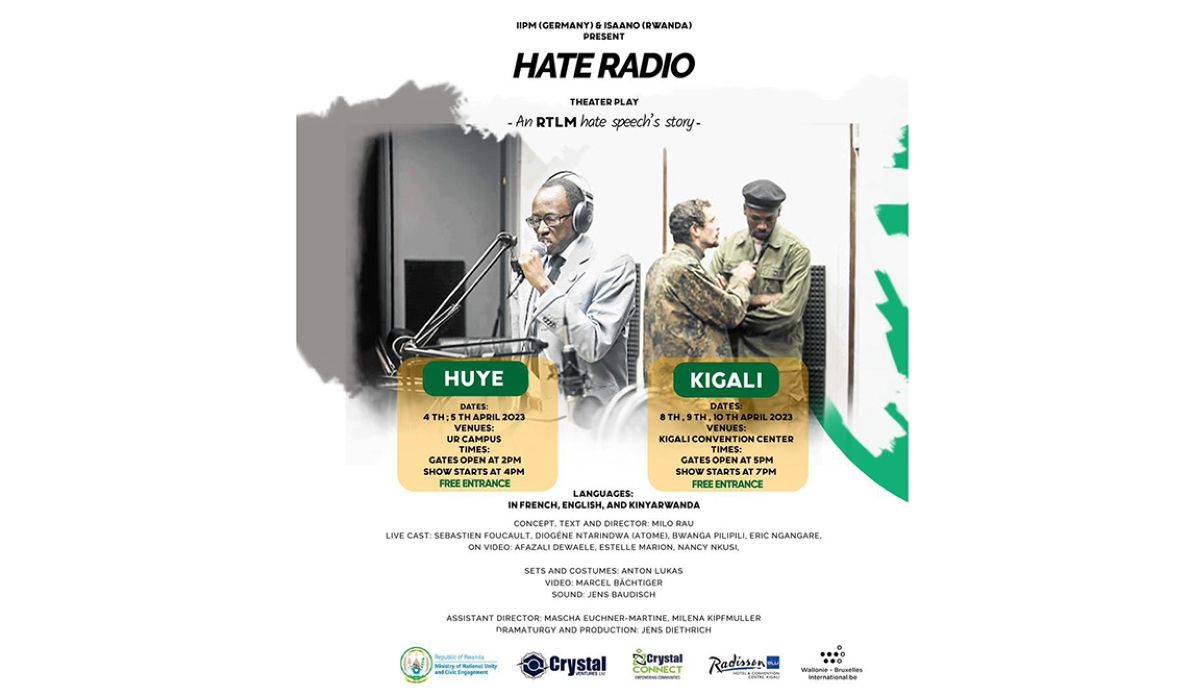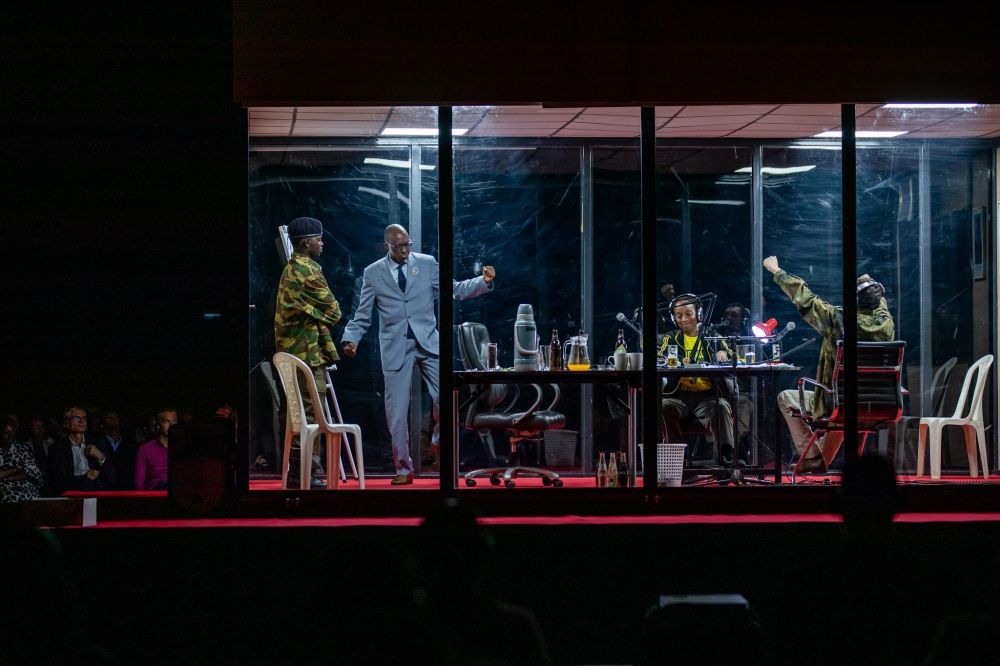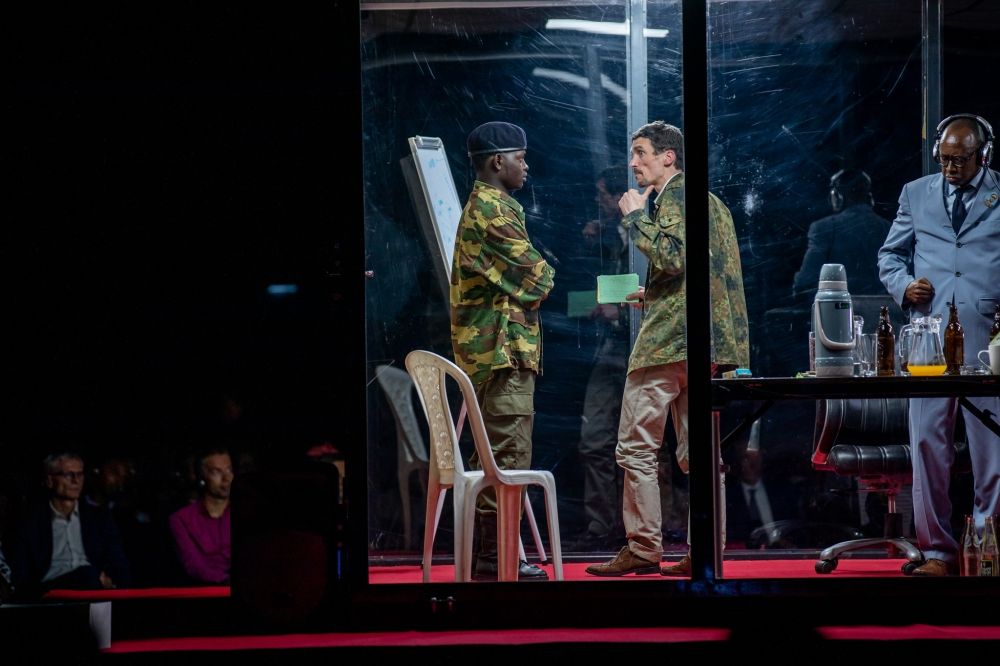Trigger Warning and Disclaimer: the content that you are about to read contains graphic and sensitive experiences of the Rwanda Genocide. Reader discretion is advised. Read our full editorial notice here.
The Nightmare
On the morning of April 14, Kassim Mutunzi's heart was heavy with dread and despair, much like his fellow Tutsis who feared being slaughtered by the pogroms. Seeking refuge in a Hutu neighbor's ceiling, Mutunzi hoped to escape the killers who had vowed to end his life.
This was just one week after the 1994 Genocide Against the Tutsi had begun, claiming over a million innocent lives. The horrors of this dark period are commemorated annually in Rwanda for 100 days, from April 7 to July 4, when the genocide finally came to a halt.
Only 19 years old at the time, Mutunzi had left his grandmother and siblings behind, praying that they would remain safe in his absence. Huddled in his hiding place, he could hear a radio playing in a nearby room. Suddenly, his worst fears were realized as a journalist on the radio read out his name on a list of Tutsis who were to be hunted down and killed the next day.
“It’s 2:00 in Kigali and here is a list of names of cockroaches hiding and needing to be dealt with immediately. I hope our heroes at roadblocks and neighborhoods across Kigali are listening,” Mutunzi remembers hearing a journalist say on the radio.
"My heart sank," Mutunzi recalls. "I knew what Radio Télévision Libre des Mille Collines (RTLM) was and that every Kigali killer was after me. Worse still, my family and friends were in danger too." With a heavy heart, he knew he had to leave the area immediately.

A poster for the Hate Radio play that recaptures the role of media during the 1994 Genocide against the Tutsi, particularly the RTLM radio that aired in the early 1990s. Source: Ange Iliza
Through sheer luck and cunning, Mutunzi managed to obtain a fake identification card with a different name and ethnicity, allowing him to flee the country. But the cost of his escape was steep, as his grandmother and brother were among the many innocent victims of the genocide.
Mutunzi's story is just one of many who fell victim to the Radio Television Libre de Muhabura, a radio station that was financed by Rwanda's president at the time, Juvenal Habyarimana, as well as some of the country's wealthiest citizens, including Felicien Kabuga. The radio station became synonymous with terror, haunting survivors, and future generations alike.
The Play
Twenty-nine years later, on April 6-10, 2023, a Swiss theater director, Milo Rau, known for his artistic and provocative plays in Europe, brought back RTLM in Kigali in a form of a theatre play. The play attempted to highlight the role of hate speech in advancing conflicts - and genocide, in Rwanda’s case.
In a well-lit rectangular glass studio set in the middle of one of the Kigali Convention Center rooms, three journalists, Diogène Ntarindwa, Bwanga PiliPili, Sébastien Foucault take turns whooping and ranting into the microphones. With its raucous “zoo radio” format, it could be any 1993-1994 show at RTLM; there are jingles, phone-ins, news bulletins, and the latest hits from Nirvana and Reel 2 Real.

The dim-lit glass box that served as a stage for Hate Radio actors as it played for the first time in Kigali. Source: Olivier Mugwiza
Sitting in the audience, the audience vividly felt they are watching a re-enactment of a typical broadcast from RTLM, also known as “Radio Machete”. The play was a ruthless emotional assault, full of harrowing tales of survivors and the human face of hatred.
The brutality of the 1994 Genocide against the Tutsi and the events that led to it are pure horror in Hate Radio. The only thing that saves the audience from completely coming apart at the seams is the knowledge that what they are watching is art and that almost 30 years separate members of the audience and the horrific days of the genocide portrayed on stage.
The play "Hate Radio," which has been played in 28 countries across Europe and the Americas, was derived from 1,200 pages of transcripts of the original radio. The production portrays some of the radio's popular journalists, including Valerie Bemeriki, played by Bwanga Pili Pili, a Congolese actress based in Belgium. Bemeriki is currently serving a life sentence for her involvement in the genocide.
Another journalist featured in the play is George Ruggiu, a German national who is the only non-Rwandan convicted of involvement in the genocide. He served 12 years in prison until his release in 2009. The third journalist in the play, Kantano Habimana, one of the most popular presenters of the RTLM during the genocide, passed away in the DRC in 2002. The producer of the play says it serves to educate young people about how hate speech and propaganda work and how to unmask and counter them.

The audience watching one of the scenes that features German journalist George Ruggiu convicted of involvement in the genocide. Source: Olivier Mugwiza
The Warning
As society grapples with the ever-increasing threat of hate speech amplified by social media, the play "Hate Radio" is more relevant than ever. Against the backdrop of mounting concerns over hate speech and violence against Rwandans and Kinyarwanda-speaking Congolese in the eastern Democratic Republic of Congo, the United Nations has issued dire warnings of a potential genocide.

A scene from the Hate Radio play acted by journalists. Source: Olivier Mugwiza
In November of 2022, Alice Wairimu Nderitu, the United Nations Special Adviser on the Prevention of Genocide, stated that the current violence is a clear indication of societal fragility and a disturbing reminder of the conditions that led to past genocides. Despite the warnings and reality on the ground, observers and academics are sounding the alarm that signs of impending danger are being ignored, echoing the dangerous deja-vu experienced by Rwandans in the past.
It is imperative that the commitment made 75 years ago to "Never Again" urgently recalls the history of the holocaust is not forgotten, and that steps are taken to prevent a tragedy from occurring once again. In this climate, "Hate Radio" serves as a stark reminder of the destructive power of hate speech and the urgent need for action.
